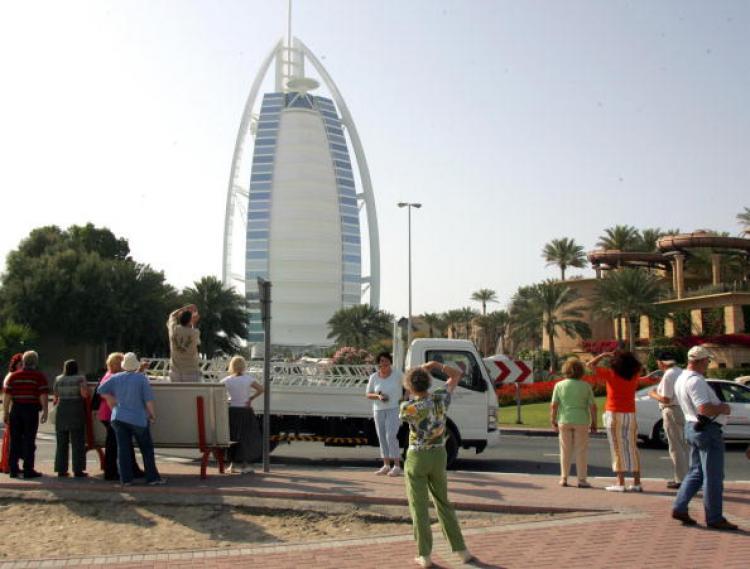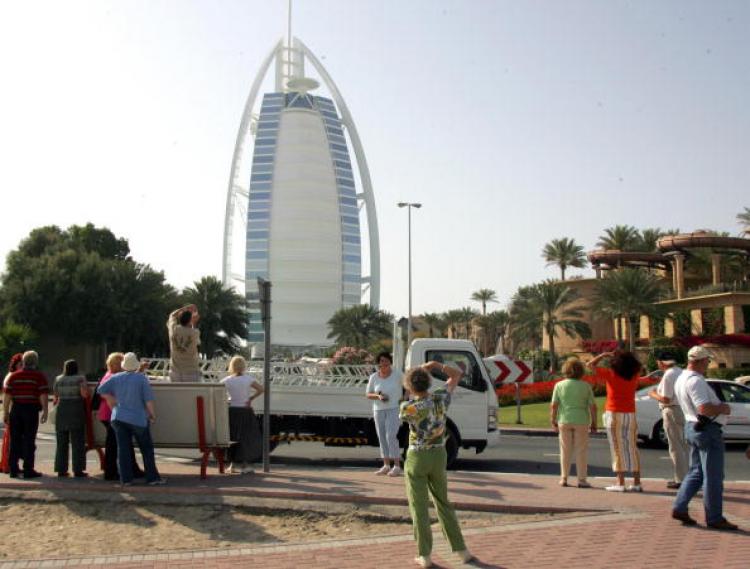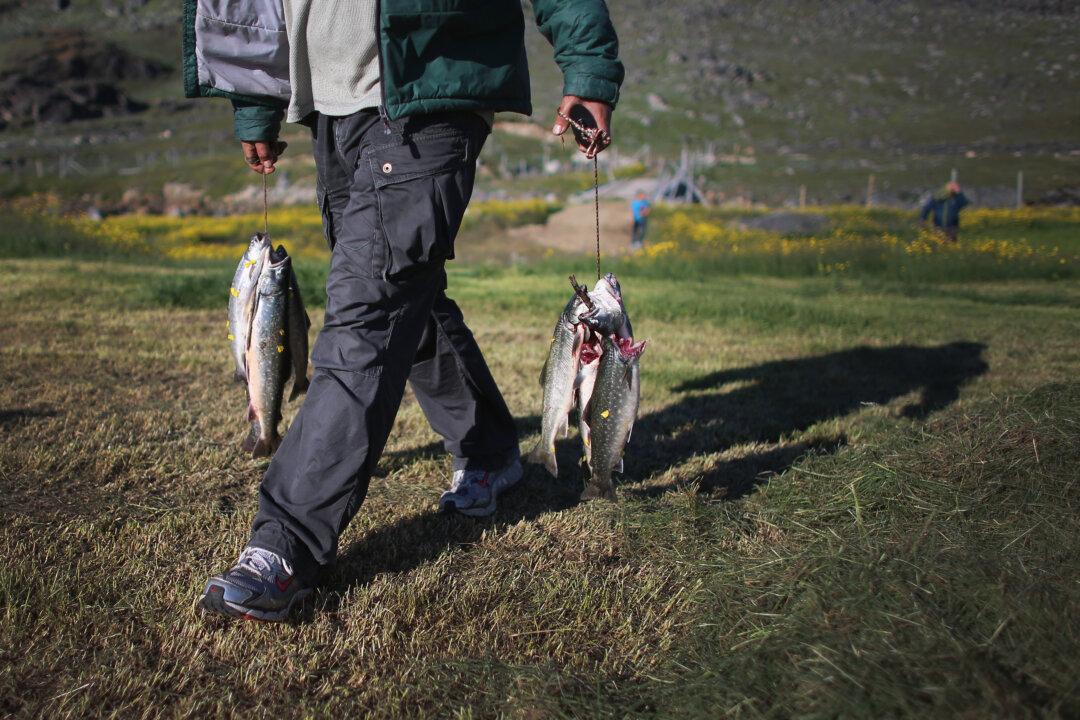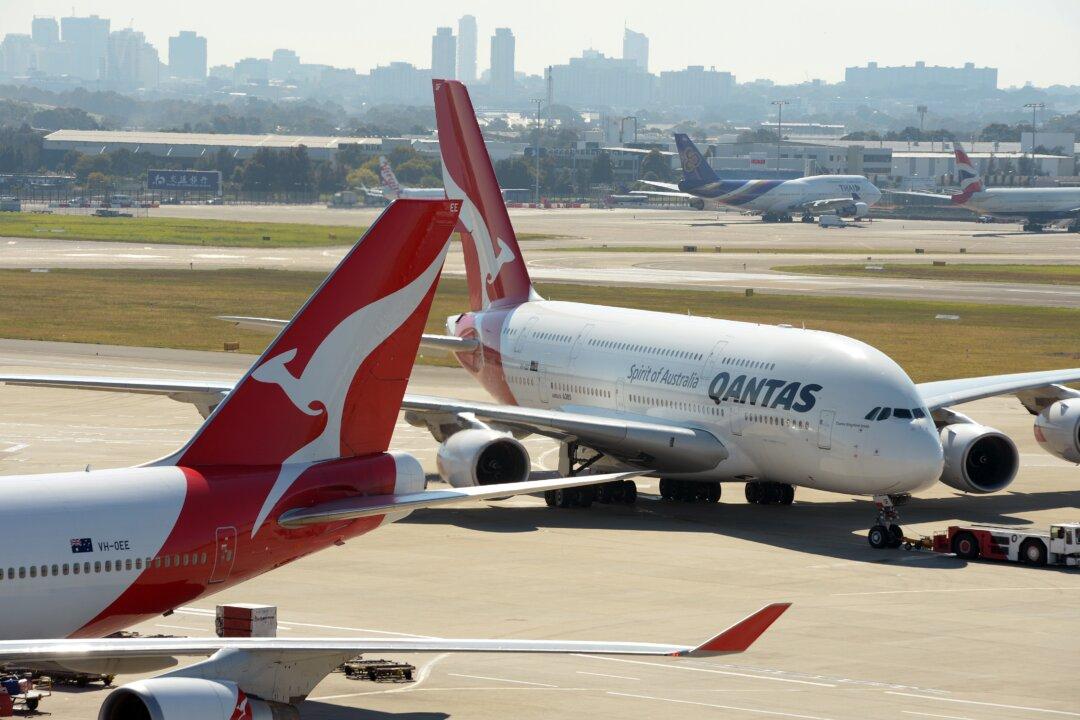Brits Accused of Bringing ‘Social Depravity’ to Dubai
A backlash against Westerners is growing in Dubai following the arrest of a drunken British couple having sex on a public beach.
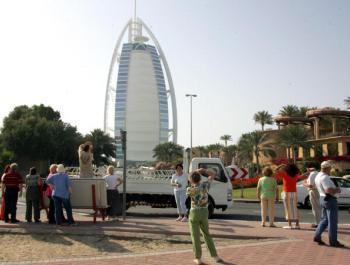
European tourists take pictures of the Burj al-Arab (L) and Jumeirah Beach Hotel in Dubai. Rabih Moghrabi
|Updated:
